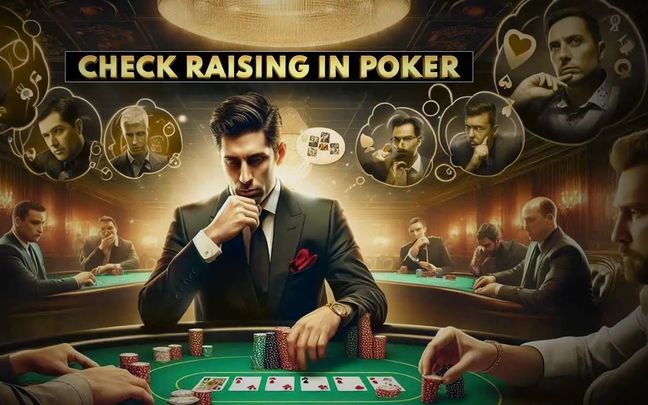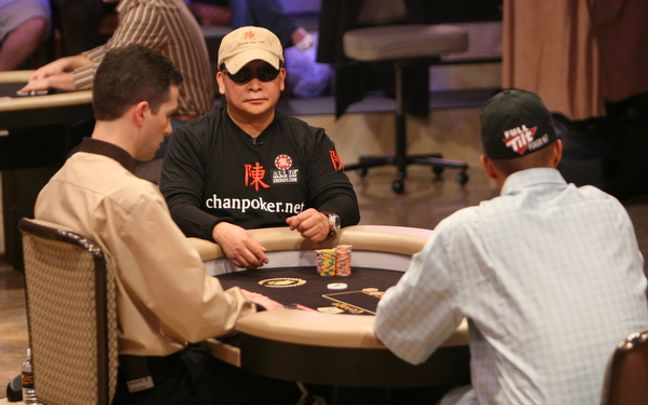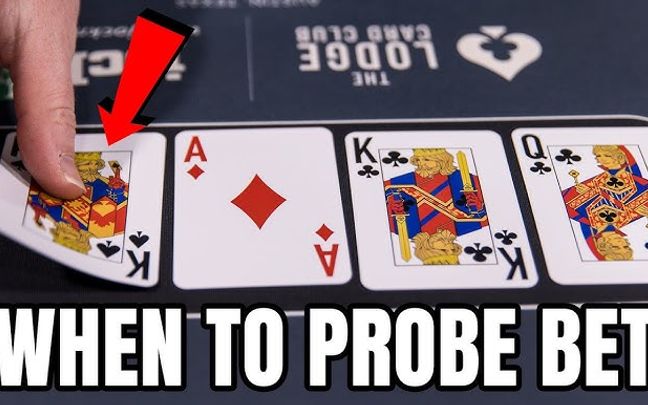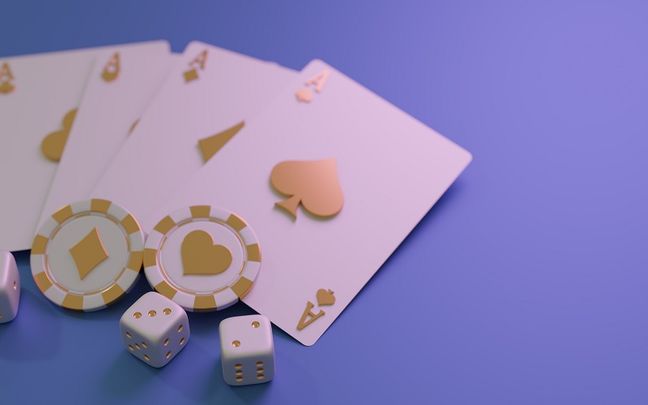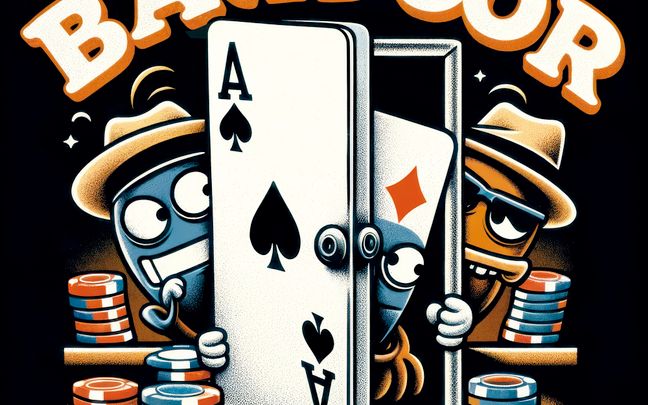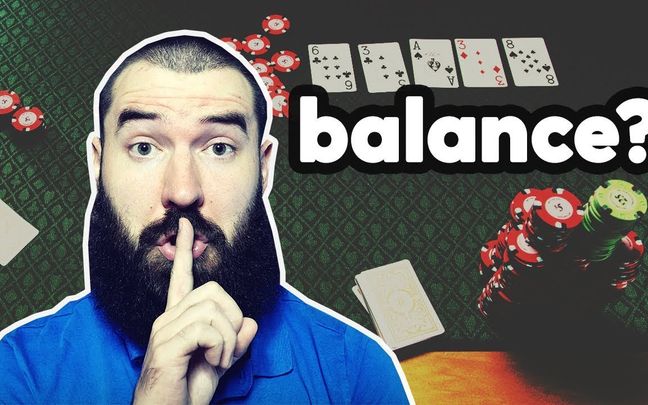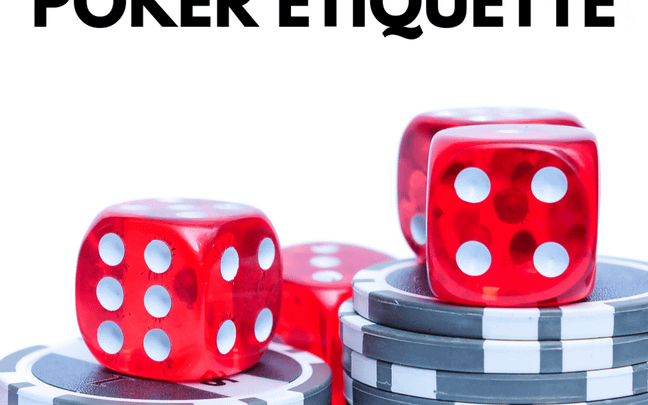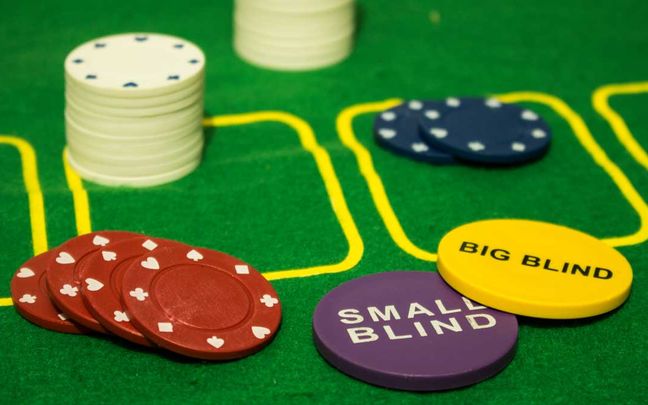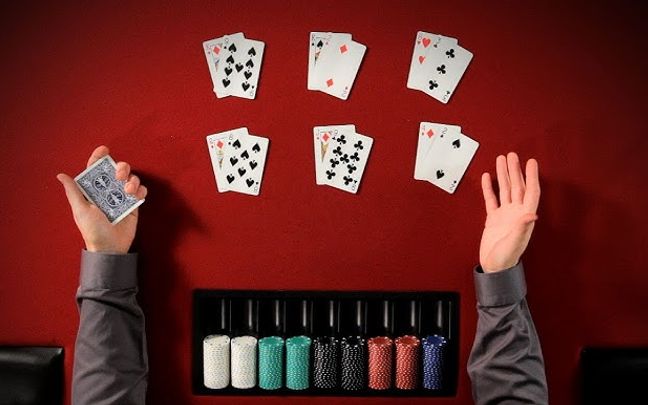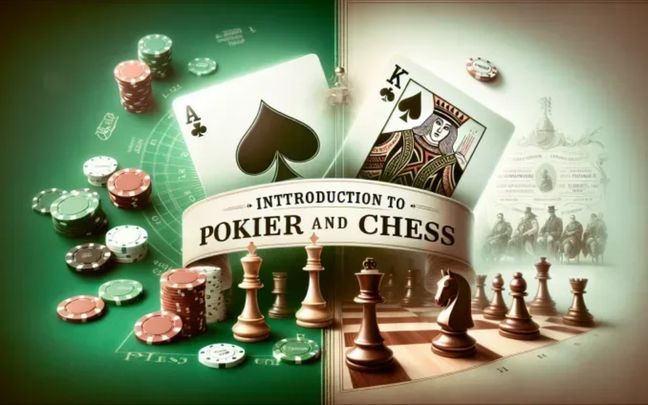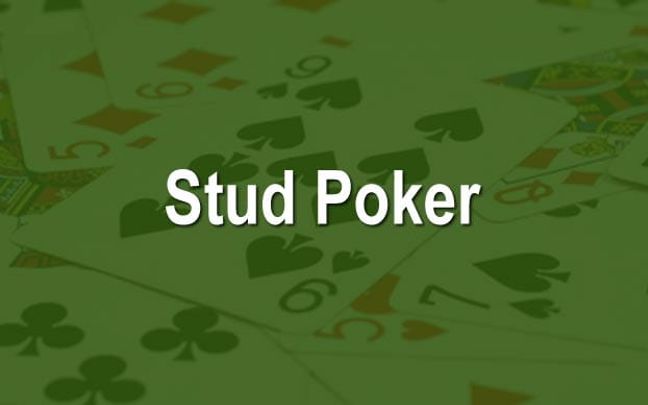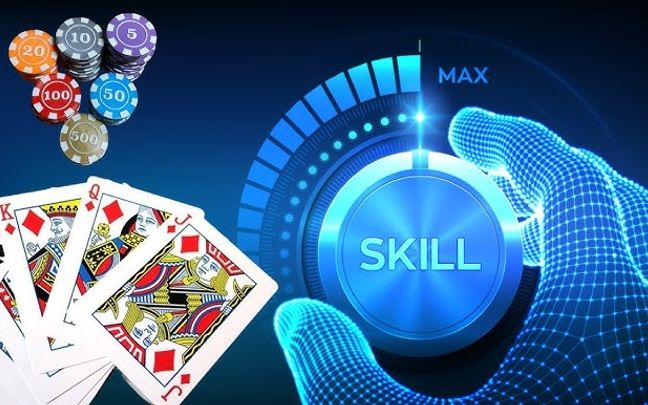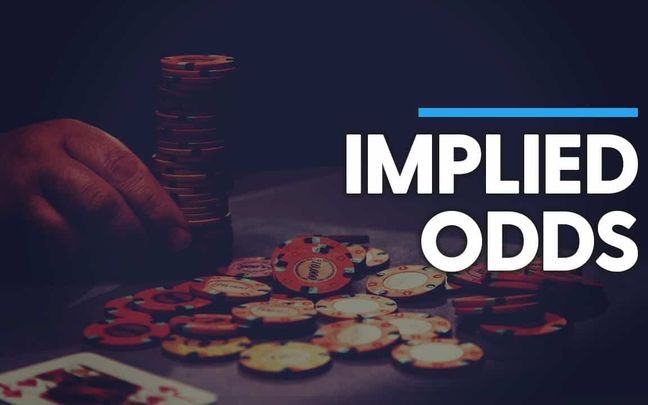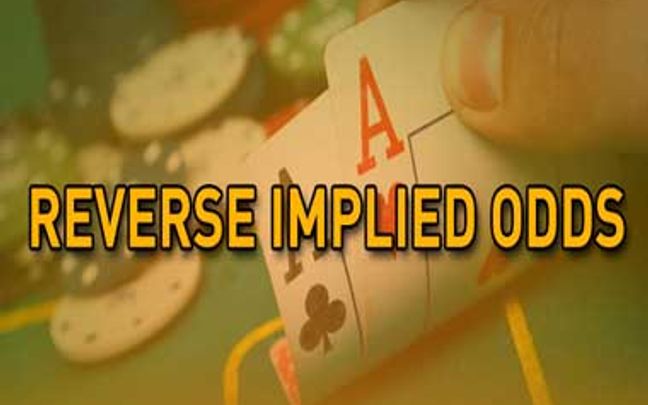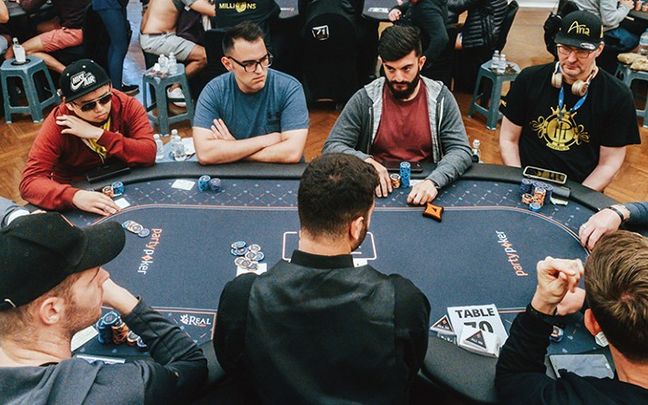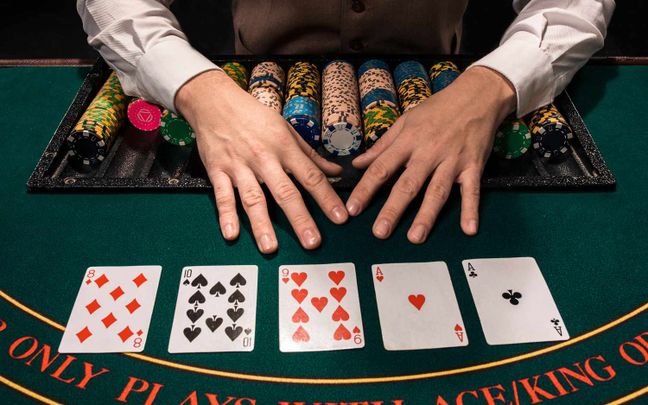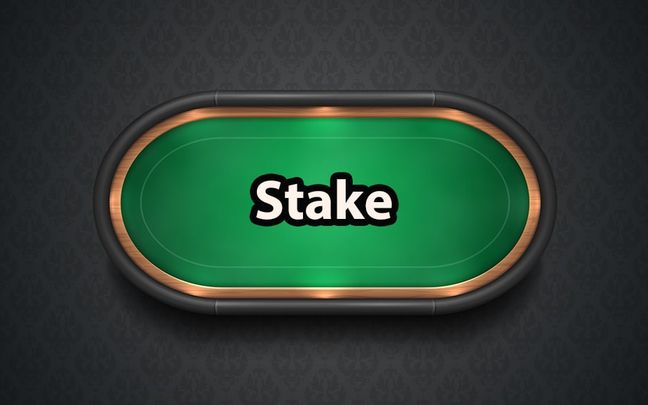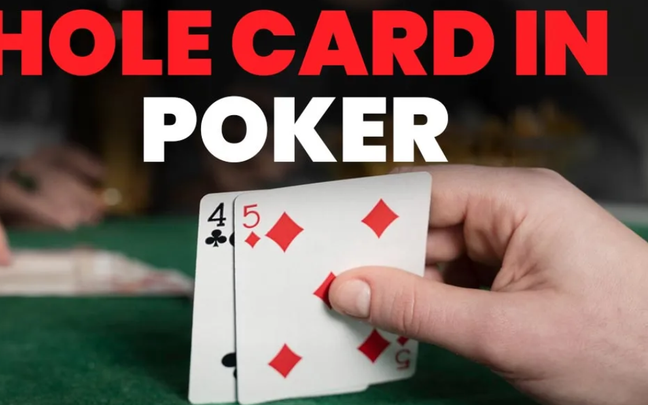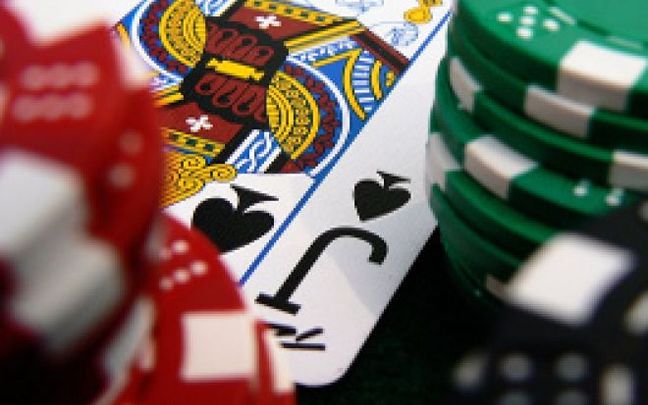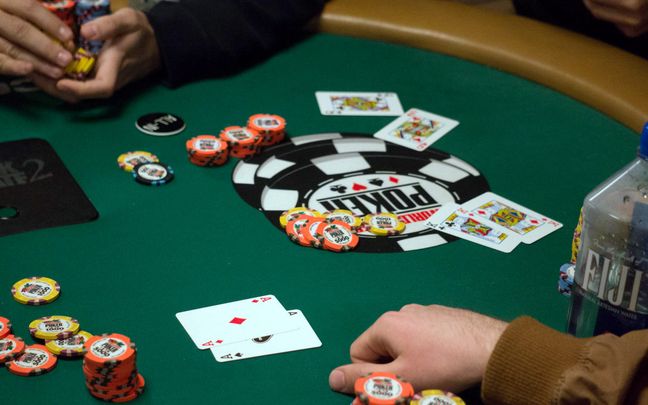Playing poker professionally is not just about mastering the rules; it also involves strategy, psychology, and financial management skills. To succeed in this challenging game, you need to understand how to read your opponents, choose the right moments to bet, and develop your personal skills. This article will help you explore the essential principles and strategies to become a professional poker player.

Analyzing played hands is a key strategy for developing professional poker skills.
How to Play Professional Poker
Playing professional poker requires not only card-playing skills but also a deep understanding of strategy, psychology, and financial management. Below is a detailed guide on how to play professional poker, covering aspects from technical skills to mental toughness.
Master the Rules
Before entering the world of professional poker, the first thing you must do is master the rules of the game. Each type of poker, from Texas Hold'em to Omaha or Seven-Card Stud, has its own specific rules. Make sure you understand how the cards are dealt, the betting rounds, and how to determine the winner. A clear understanding of the rules will help you avoid unnecessary mistakes and create a solid foundation for developing your playing skills.
Learn Basic Strategies
There are many different poker strategies, but some fundamental principles should be remembered:
Table Position: Your position at the table significantly influences how you play. Players in late position have an advantage because they can observe their opponents' actions before making decisions. Adjust your strategy based on your position.
Starting Hands Selection: Not all hands should be played. Learn to filter your starting hands based on position and situation. Playing too many hands can lead to poor decisions and chip loss.
Optimal Betting: Betting techniques are crucial in poker. Learn how to value bet when you have a strong hand and bluff when you want to deceive your opponents. Knowing when to bet and how much will help you maximize your profits.
Analyze Opponents
One of the most important factors in poker is the ability to analyze your opponents. Observe how they play, their betting patterns, and their psychological cues. Use the following factors to evaluate your opponents:
Playing Style: Determine whether your opponent is tight or loose and if they are aggressive or passive in their betting.
Betting Frequency: Keep track of your opponent's betting frequency and whether they easily fold under pressure.
Psychological Habits: Sometimes, external cues such as eye contact, gestures, and interaction can reveal information about the hands they are holding.
Financial Management
Financial management is an essential part of playing professional poker. You need to have a clear plan for how to use your bankroll.
Set a Budget: Establish a specific budget for playing poker and stick to it rigorously. Never risk money you cannot afford to lose.
Choose Appropriate Stakes: Select stakes that you feel comfortable with and can manage. Avoid playing too high relative to your financial capacity.
Track Results: Keep records of your playing results to analyze your performance and adjust your strategy as necessary.
Develop Psychological Skills
Psychology is a critical factor in poker. Patience, determination, and emotional control are decisive elements for success in this game.
Emotional Control: Do not let emotions dictate your decisions. Learn to manage anger or frustration when you lose. This will help you maintain focus and make more rational decisions.
Professional Mindset: Always maintain a positive attitude, even when things do not go as planned. This not only helps you play better but also creates a good impression on your opponents.
Mindfulness Practice: Techniques such as meditation or exercise can improve your focus and calmness while playing.
Continuous Practice and Learning
Finally, nothing replaces the value of practice. Engage in cash games, enter tournaments, and learn from real-life experiences. You can also join poker forums, read books, and watch videos from experts to enhance your knowledge and skills.
Developing professional poker skills is an ongoing and challenging journey. It requires mastering techniques, analyzing opponents, managing finances, and building strong psychological resilience.
With patience and commitment, you will gradually progress toward becoming a successful and professional poker player. Remember, in poker, knowledge and skill are power; even a small mistake can lead to failure. Wishing you success on your poker journey!

Reading your opponents enhances your abilities in professional poker play.
Frequently Asked Questions about Professional Poker Play
Playing professional poker is a journey that requires patience, research, and continuous practice. The following frequently asked questions provide an overview and help you gain a better understanding of how to play poker professionally.
What is professional poker?
Professional poker involves playing poker with the goal of making a profit. Professional players often dedicate significant time to studying, practicing, and developing their skills. They possess the ability to read opponents, manage their bankroll, and make strategic decisions in every situation.
What skills are necessary to become a professional poker player?
To become a professional poker player, you need to develop several essential skills, including:
-
Analytical skills: The ability to read opponents and analyze game situations.
-
Financial management: Skills for managing your bankroll, including determining appropriate stakes and tracking your results.
-
Psychological skills: The ability to control your emotions and maintain focus while playing.
-
Strategic knowledge: A deep understanding of various poker strategies and knowing when to apply them.
How do I manage my finances while playing poker?
Financial management is an essential aspect of professional poker play. Here are some tips:
-
Set a budget: Establish a specific budget for playing poker and adhere to it strictly. Never risk money you cannot afford to lose.
-
Choose appropriate stakes: Select stakes that you feel comfortable with and can manage effectively. Avoid playing at levels that are too high for your financial situation.
-
Track results: Keep a record of your play results to analyze your performance and adjust your strategy as needed.
Why is psychology important in poker?
Psychology plays a crucial role in poker as it influences how you make decisions. Patience and emotional control help you avoid being swayed by external factors. A player with good psychological skills can read opponents and make sound decisions even in high-pressure situations.
How do I analyze opponents in poker?
Analyzing opponents is an important skill in professional poker play. To do this, you need to:
-
Observe opponents' actions: Pay attention to how they bet, how they fold, and their playing habits.
-
Identify playing styles: Determine whether your opponents are tight or loose players and if they tend to bet aggressively or passively.
-
Analyze psychology: Sometimes, external cues such as eye contact, gestures, or interactions can provide insights into the hands they are holding.
What popular types of poker are suitable for beginners?
Some popular types of poker that beginners can try include:
-
Texas Hold'em: This is the most popular and easiest poker variant to learn. Each player receives two private cards and five community cards dealt on the table.
-
Omaha: Similar to Texas Hold'em, but players receive four private cards and must use two of their own in combination with three community cards.
-
Seven-Card Stud: Players receive seven cards, three of which are face down and four face up. There are no community cards in this variant.
How can I improve my poker skills?
To improve your poker skills, consider the following steps:
-
Play regularly: Join cash games and tournaments to gain experience.
-
Watch videos and read books: Seek instructional materials from poker experts to learn more about strategies and techniques.
-
Join poker forums: Participate in poker communities to share experiences and learn from other players.
-
Review your past hands: Analyze your played hands to identify correct and incorrect decisions, drawing lessons for future play.
Should I play poker online?
Playing poker online is a popular option for many players, especially beginners. Some benefits of online poker include:
-
Convenience: You can play from anywhere at any time.
-
Variety of options: There are numerous online cash games and tournaments to choose from.
-
Opportunities to learn: Online poker rooms often offer free play modes, allowing beginners to practice before joining real-money tables.
How do I know when to fold?
Knowing when to fold is an important skill in professional poker play. Consider the following factors:
-
Betting situation: If your opponent is betting strongly and you do not have a strong hand, it may be wise to fold.
-
Position: If you are in a disadvantageous position and lack information about your opponent, folding may be a smart choice.
-
Gut feeling: If you feel uncomfortable with your hand or your opponent's play, trust your instincts and consider folding.
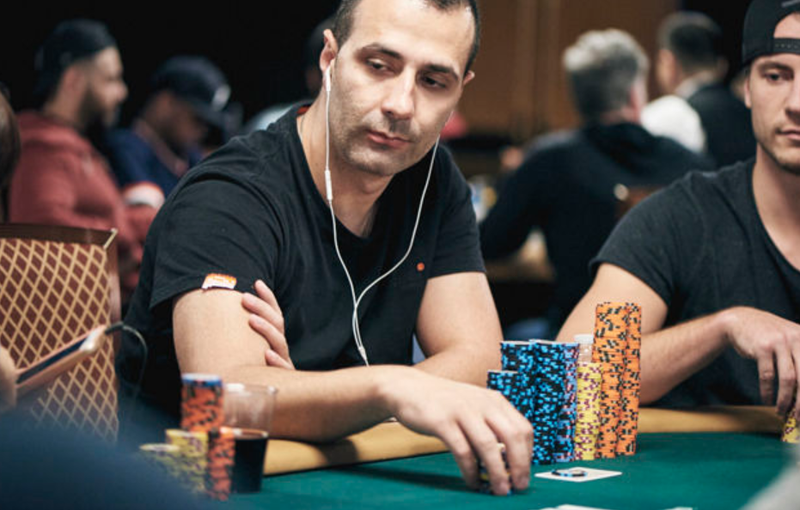
Participating in tournaments helps you hone your professional poker skills more quickly.
Becoming a professional poker player requires continuous learning, practice, and skill development. From mastering the rules of the game to managing finances and mental fortitude, every aspect needs attention. Always remember that patience and strategy are the keys to success. I hope the insights shared above will help you enhance your abilities and achieve a professional level of play in poker.
